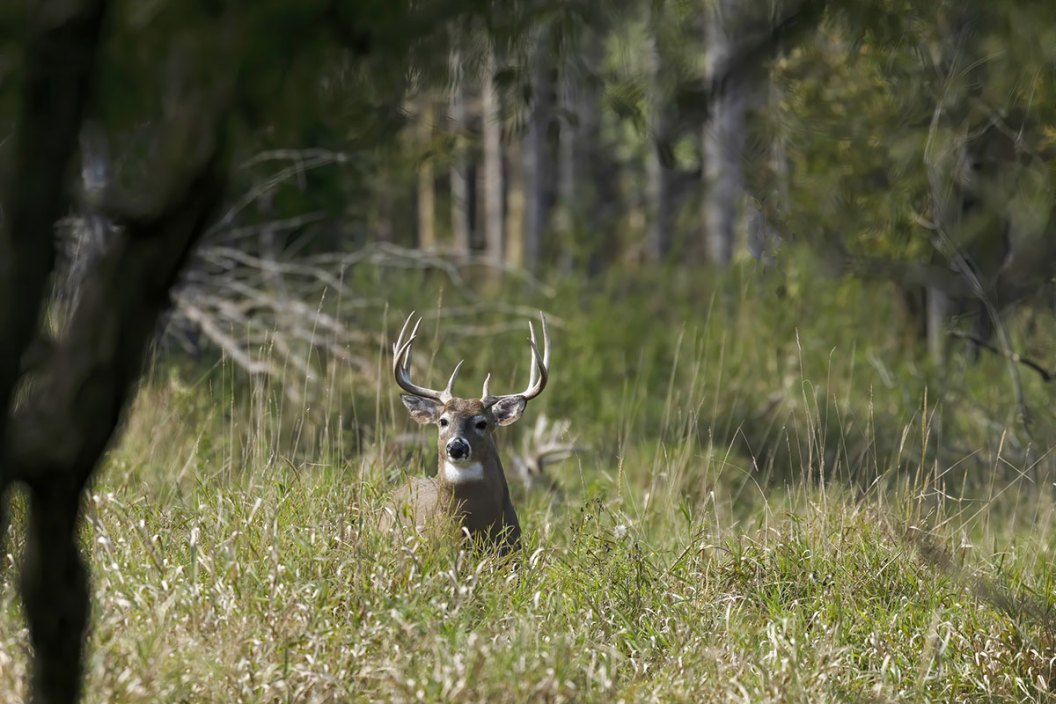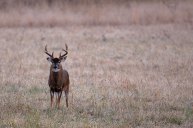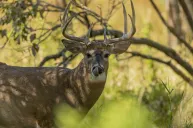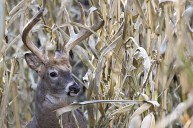Some say "If it's brown it's down," but you still have to shoot it first.
Honestly, in deer hunting as well as with fishing, if we think that it will work, we would cast our car keys or drive the car out to our treestand and turn on the headlights, in the hope that the big boy will come in and stop.
We should say right off the bat that this will include several ways to actually shoot your deer and a couple of interesting ways to get one into shooting range, but all of these are a bit off of the beaten path.
That being said, it seems like every year we get into a rut (no pun intended) while hunting deer. We are always on the lookout for that one new thing that will "put the odds ever in your favor" and fill the freezer with some fresh venison.
Deer hunting (as with any hunting) comes with its challenges and folks are willing (up to a point) to try some unconventional ways in the effort to score.
Honorable mention to all of the handgun deer hunters out there who fully understand how much fun it is to put the crosshairs on a big buck with a firearm such as the Ruger Super Redhawk chambered in a .45 ACP and a good scope.
With all respect and homage to the indomitable handguns which take many deer each year, there are still a few ways that aren't as widespread and common as the compound bow, rifle, and the shotgun. Your hunting experience may include still hunting backwards or jumping over deer trails to keep from leaving your scent on it, but one thing that we can all take to the bank is this: If it works, then it ain't stupid.
1. Shoot a Doe
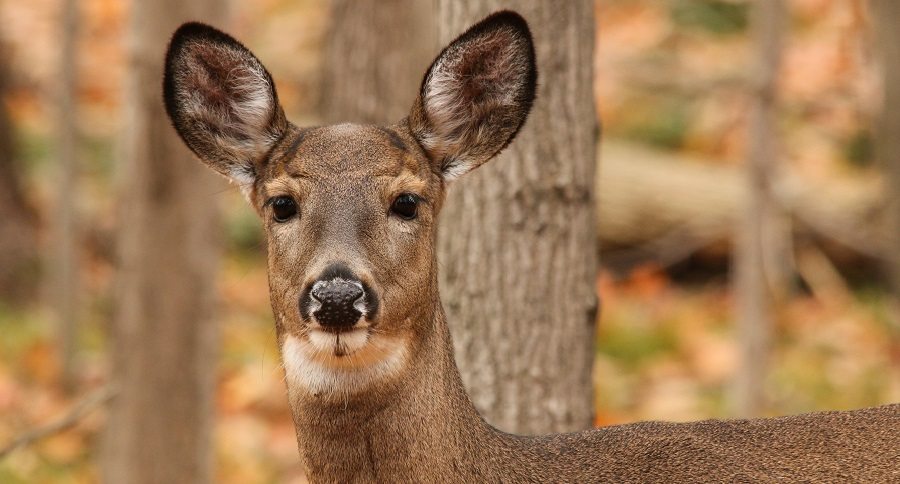
Let's start with an interesting theory that I personally believe in, but that has no basis in scientific fact, only that the reasoning is sound.
This can be especially true during late bow season when the rut is really ramping up, and on the opener of firearms season when the deer are just beginning to hear all the shooting. In this case, you'll want to try and take a larger, more mature doe with the idea being that you've put a doe that is in estrous, or coming into estrous, on the ground near you.
Now it's a waiting game.
There's a school of thought in the hunting community that there's no more effective way to reach out to a mature buck than to shoot a doe (and all her scent) first. The thinking is that bucks will be drawn to the scent even after her death.
This can mean a long wait in the treestand or ground blind, but you were going to sit there anyway!
I've personally seen deer stand there over a dead doe that I harvested, more than one time in my hunting life, even though they were right with her when I touched off the shot. I've even had them walk away from her, and then return, only leaving the area after feeding, browsing, and even lying down.
In all honesty, I've never taken a buck this way, but it still makes sense to sit as long as you can after taking a mature doe since that's exactly what a mature buck is looking for.
2. Deer By Spear
Conventional wisdom says this is almost too crazy to attempt: waiting for a deer to come into such a range and at such an area that it makes it possible to send a long spear down and through their heart or lungs.
Spear hunters must learn to effectively camouflage their movement and their scent more so than traditional deer hunters since the shots they will need to take come from such a close range and with much more movement,
Hunting spears are sometimes shorter and lighter, making them better suited for animals. Modern spear designs are mostly made for hunting and can be used to throw or to lunge with, but they certainly still rely on a sharpened point and cutting edges to deal enough damage to your quarry to put it down.
3. Atlatl
The Atlatl is a spear throwing implement in which the projectile is actually known as a dart. It is said that the Atlatl pre-dates the bow and arrow as a hunting device back to the upper Paleolithic period around 17,000 years ago.
The first thing that you might say is that an Atlatl is a spear, and you would be partly correct. The difference here is that with an Atlatl, the hunter can make shots from more of a distance making it less necessary to get right on top of the target.
Even by using this primitive device a hunter must still be fairly close to is or her target, making stealth just as important.
An Atlatl can be deadly within 30 yards or so, but a veteran thrower can launch a dart up to 100 yards or more for sheer distance. Back in 2015 the Missouri Department of Conservation reported that a hunter by the name of Paul Gragg shot a 15-point buck with his Atlatl only four months after learning how to use one!
Unconventional to say the least.
4. Longbow
Again, this is not all that unusual, only that it is not the standard by which many bowhunt these days. Using a longbow is similar to using those bows that we all started with in school to put target points into a hay bale. It stung our fingers and ripped the skin off of our wrists, making us praise forever the invention of the bow release.
One of the greatest reasons why the compound bow was invented was to give the hunter more kinetic energy and range to strike deer and other game proficiently and provide a greater kill ratio. The compound bow is easier to aim than a longbow as the string forces at full draw are reduced due to the let-off, and since a hunter should be using at least a 40-pound draw weight, it makes it is more skill related to use a longbow.
If a deer hunter is looking for a real challenge, a longbow at 20 yards is considered a long shot. It'll push your hunting skills to the limit and possibly make you a better hunter. A stick and a string as they say, is all that stands between you and your quarry.
5. Build a Fire
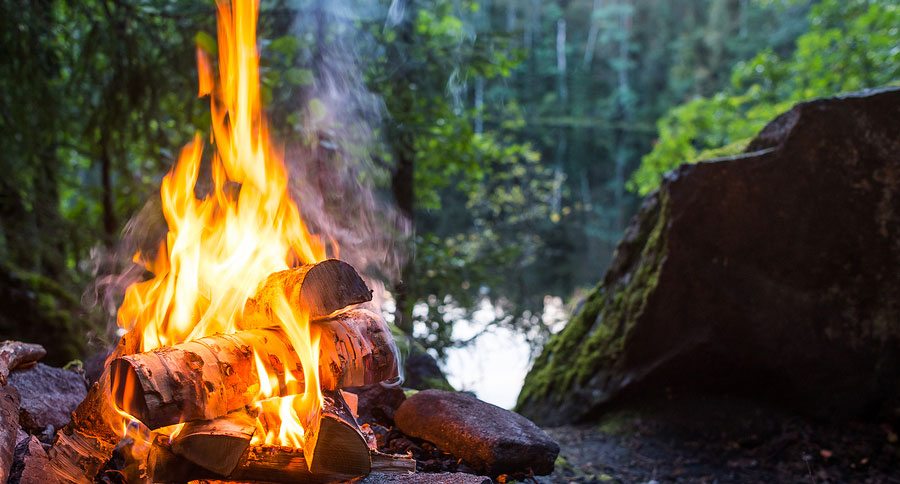
Sure, many hunters might consider this nonsense and it might make them chuckle, but hear us out.
These days deer hunters can find many things that smoke, smolder, and waft some kind of burnt scent through the woods to attract deer. There's a reason for it: deer are just curious creatures.
We're not talking about making a bonfire, just a small pile of burning twigs and dried debris that you can usually find right around your stand that will create a scent pattern that floats right on the prevailing wind. It's said that the Cree Indians in and around Manitoba, Canada, have used fires throughout their history to stay warm while hunting and to lure deer and even moose into bow range, and they're probably not the only ones.
This is not to mention pinching your nose and cutting loose with a homemade nasal grunt-snort-wheeze all while marinading in a musk of buck urine and tarsal gland. Deer hunting brings out the adventurous side in all of us, especially when it comes to trying new things. We do get hung up in our old ways, but it's usually because the old ways have worked.
When you find yourself needing an edge or just a change from the everyday deer hunt, then maybe one of these unconventional methods may be something that you've been looking for.
Looking for a little more or even hot lunch for your hunting blind? Follow my webpage, or on Facebook and Twitter.
NEXT: 20 THINGS OTHER DEER HUNTERS DO THAT DRIVE US ALL NUTS
WATCH
